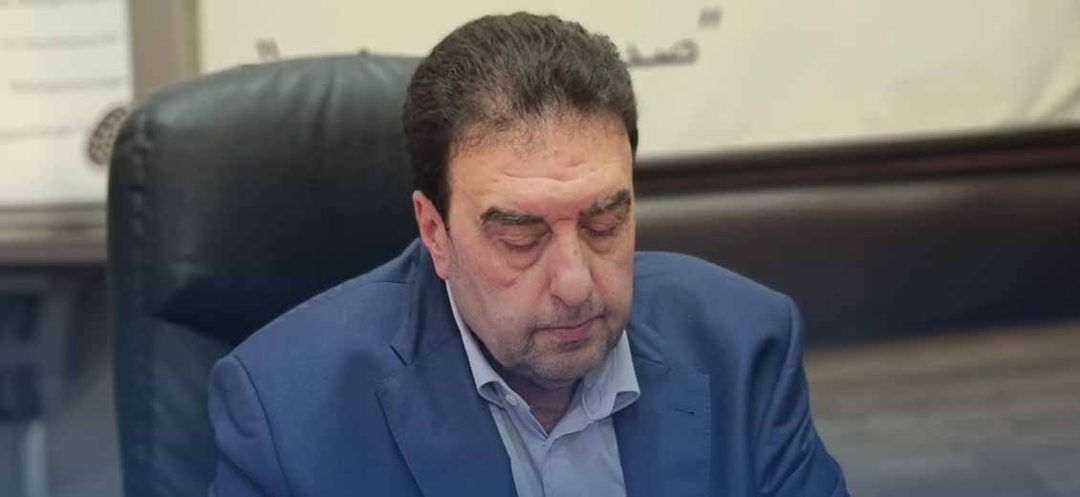
Walid Baarini, a member of the National Moderation parliamentary bloc, lamented his party’s setback on Wednesday. In a radio interview, he disclosed that their bloc was “on the brink of declaring the failure of their initiative” aimed at resolving the presidential deadlock.
In the weeks leading up to Ramadan, the bloc embarked on a tour of the main political parties in Parliament, seeking common ground for an initiative to spur informal discussions on the presidential election. The goal was to persuade them to engage in talks before urging Parliament Speaker Nabih Berri to convene an electoral session with successive rounds until a president was elected.
The initiative saw positive reactions from several political leaders, such as the Lebanese Forces and the Kataeb, which supported it and remained optimistic despite their skepticism of its success. This doubt was solidified when Hezbollah hardened its stance.
The pro-Iranian party conveyed to a delegation from the Moderation bloc that any dialogue on the presidential elections, formal or otherwise, should be presided over by Nabih Berri.
This proposition was rebuffed by the opposition, as they maintain that the Speaker of Parliament’s role is simply to convene a parliamentary session to elect a president, strictly in accordance with the Constitution.
Baarini acknowledged that the failure of the Moderation initiative was attributed to “the profound divisions among the political forces.” He believed that even the Quintet, comprising the United States, France, Saudi Arabia, Egypt and Qatar, which renewed its efforts to resolve the presidential deadlock post-Fitr, was “at a stalemate.”
He hinted at differences within the Quintet regarding approaches to the presidential election, without delving into specifics.
Baarini's remarks come at a time when Quintet ambassadors have resumed consultations with various political forces.
On Tuesday, they convened at the residence of the Egyptian Ambassador, Alaa Moussa, meeting with representatives of the National Consensus, Renewal, Change and Tachnag parliamentary blocs.
Today, they are expected to visit Kataeb leader Samy Gemayel.
In the weeks leading up to Ramadan, the bloc embarked on a tour of the main political parties in Parliament, seeking common ground for an initiative to spur informal discussions on the presidential election. The goal was to persuade them to engage in talks before urging Parliament Speaker Nabih Berri to convene an electoral session with successive rounds until a president was elected.
The initiative saw positive reactions from several political leaders, such as the Lebanese Forces and the Kataeb, which supported it and remained optimistic despite their skepticism of its success. This doubt was solidified when Hezbollah hardened its stance.
The pro-Iranian party conveyed to a delegation from the Moderation bloc that any dialogue on the presidential elections, formal or otherwise, should be presided over by Nabih Berri.
This proposition was rebuffed by the opposition, as they maintain that the Speaker of Parliament’s role is simply to convene a parliamentary session to elect a president, strictly in accordance with the Constitution.
Baarini acknowledged that the failure of the Moderation initiative was attributed to “the profound divisions among the political forces.” He believed that even the Quintet, comprising the United States, France, Saudi Arabia, Egypt and Qatar, which renewed its efforts to resolve the presidential deadlock post-Fitr, was “at a stalemate.”
He hinted at differences within the Quintet regarding approaches to the presidential election, without delving into specifics.
Baarini's remarks come at a time when Quintet ambassadors have resumed consultations with various political forces.
On Tuesday, they convened at the residence of the Egyptian Ambassador, Alaa Moussa, meeting with representatives of the National Consensus, Renewal, Change and Tachnag parliamentary blocs.
Today, they are expected to visit Kataeb leader Samy Gemayel.
Read more



Comments